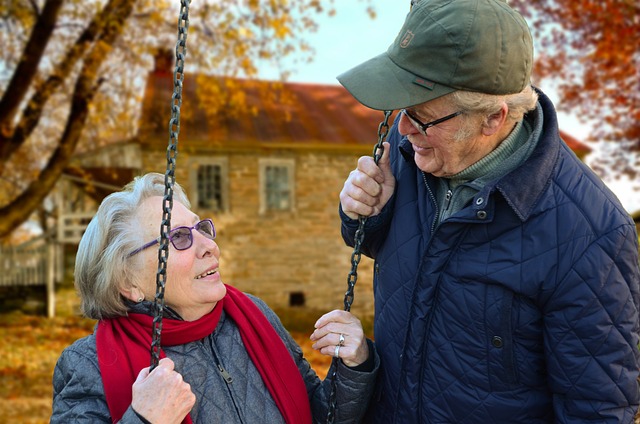Protecting grandparental rights in Oregon involves balancing parental authority and the best interests of grandchildren. Grandparents can establish and maintain visitation and custody through court orders facilitated by legal support services, including mediation, legal aid programs, and specialized family law attorneys. Understanding specific rights under Oregon Revised Statutes (ORS) is crucial, with courts considering child interests, grandparent-grandchild relationships, and family dynamics when making decisions. Legal advocacy from specialists in grandparental rights is essential to effectively navigate these protections and preserve the bond between grandparents and grandchildren.
In Oregon, understanding and protecting grandparental rights is crucial for fostering strong family connections. This comprehensive guide navigates the complex landscape of grandparental rights, offering insights into Oregon’s legal framework and definitions. We explore key steps to exercise these rights, provide strategies for custody and visitation, and highlight essential legal advocacy resources. Whether you’re a grandparent seeking protection or require support, this article ensures you’re equipped with the knowledge to safeguard your relationships and ensure a harmonious family environment in Oregon.
- Understanding Grandparental Rights in Oregon: Legal Framework and Definitions
- When and How to Exercise Grandparental Rights: Key Legal Steps
- Navigating Custody and Visitation: Protecting Your Rights as a Grandparent
- Legal Advocacy and Support for Grandparents: Resources and Next Steps
Understanding Grandparental Rights in Oregon: Legal Framework and Definitions

In Oregon, protecting grandparental rights is a critical aspect of family law, ensuring that grandparents maintain meaningful relationships with their grandchildren. The legal framework surrounding grandparental rights is designed to balance the interests of parents and grandparents while prioritizing the well-being and stability of children. According to Oregon state laws, grandparental rights refer to the visitation, custody, or other parental responsibilities a grandparent may have in relation to their grandchild. These rights are not automatic but can be established through legal processes.
Understanding these legal protections involves familiarizing oneself with key definitions and procedures. Grandparental rights legal protection in Oregon is often sought through court orders, which can grant specific visitation privileges or even shared custody arrangements. The state provides legal support and resources for grandparents navigating these processes, ensuring they have the advocacy needed to protect their rights. This may include mediation services, legal aid programs, and access to specialized family law attorneys who can guide grandparents through the complexities of Oregon’s legal system.
When and How to Exercise Grandparental Rights: Key Legal Steps

Protecting grandparental rights in Oregon is a multifaceted process that requires understanding both state laws and personal circumstances. To exercise grandparental rights, parents should first ensure they have legal custody or visitation rights established for their children. This foundation is crucial as it allows grandparents to legally interact with their grandchildren. Once this is secured, grandparents should consult with an attorney specializing in family law to understand their specific rights and obligations under Oregon law.
Key legal steps involve reviewing the Oregon Revised Statutes (ORS) pertaining to grandparental rights, which provide a framework for visitation, custody, and access. Grandparents may file a petition in court to establish or modify these rights if necessary. Legal advocacy is essential, as courts will consider various factors, including the best interests of the child, the relationship between grandparent and grandchild, and any potential impact on family dynamics. Having strong legal support can ensure that grandparental rights are protected effectively and fairly.
Navigating Custody and Visitation: Protecting Your Rights as a Grandparent

Navigating custody and visitation as a grandparent in Oregon involves understanding and protecting your legally recognized rights. Grandparents in Oregon have specific legal protections under state law, which ensure their significant role in a child’s life is preserved. Familiarizing yourself with these rights is crucial. The first step is to consult an attorney specializing in family law and grandparental rights advocacy in Oregon. They can guide you through the legal process, ensuring your rights are clearly defined and protected.
Oregon laws provide a framework for establishing visitation and custody arrangements that consider the best interests of the child while also recognizing the importance of grandparent-grandchild relationships. With legal support, grandparents can navigate court proceedings to gain or maintain access, ensuring they remain an integral part of their grandchild’s life. Understanding your rights and having competent legal advocacy is essential in effectively protecting grandparental bonds.
Legal Advocacy and Support for Grandparents: Resources and Next Steps

Grandparents in Oregon facing issues related to their grandchildren’s custody or visitation rights can find solace in various legal advocacy and support systems designed to protect grandparental rights. Organizations and legal aid groups offer crucial resources, guidance, and representation to ensure grandparents understand their legal protections under Oregon law. These services are instrumental in navigating the complexities of family law and ensuring fair treatment for all parties involved.
Seeking legal assistance is a pivotal step for grandparents aiming to safeguard their relationships with their grandchildren. Legal advocates specialize in grandparental rights cases and can help interpret state laws, file necessary paperwork, and represent grandparents in court proceedings. With their expertise, they empower grandparents to make informed decisions, protect their parental rights, and maintain a significant role in their grandchildren’s lives.






